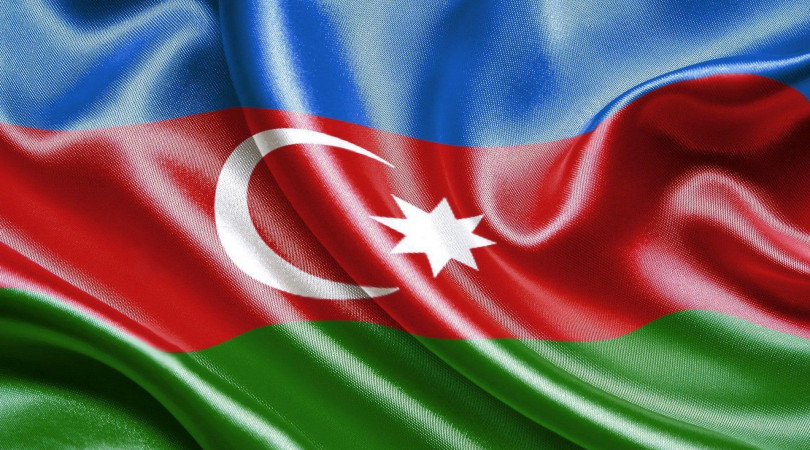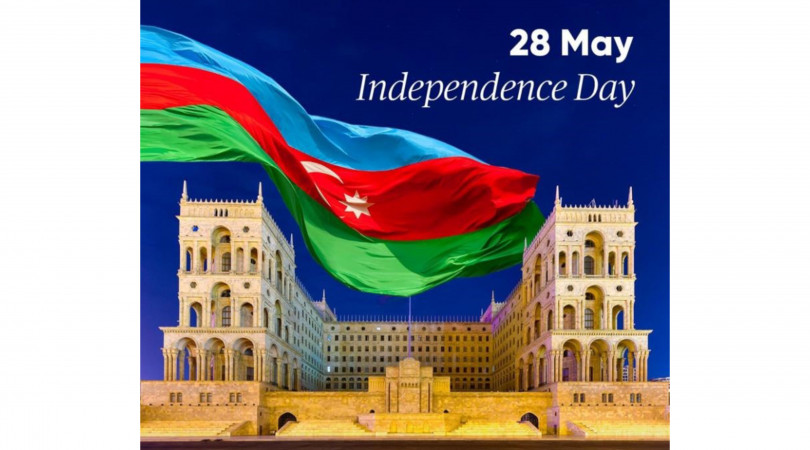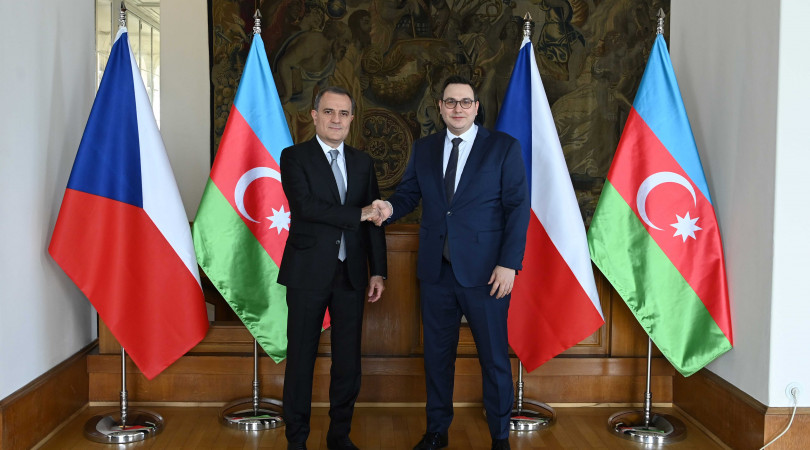Holidays
The Labor Code of the Republic of Azerbaijan
Article 105. Holidays
1. The following is deemed as the holidays of the Republic of Azerbaijan:
The New Year's Day (1 and 2 January);
The Women's Day (8 March);
The Victory Day over fascism (9 May);
The Republic Day (28 May);
The Day of National Salvation of the Azerbaijani People (15 June);
The Armed Forces Day (26 June);
The National Independence Day (18 October);
State Flag Day of Azerbaijan (9 November);
The Constitution Day (12 November);
The National Revival Day (17 November);
The World Azerbaijanis Solidarity Day (31 December);
Novruz - five days;
Gurban - two days;
Ramadan - two days.
2. New Year's Day, Women's Day, Victory Day over fascism, Republic Day, Day of National Salvation of the Azerbaijani People; Armed Forces Day, State Flag Day of Azerbaijan, World Azerbaijanis Solidarity, Novruz, Gurban and Ramadan holidays are not deemed as the working days.
3. Engaging of the employees to the working activities during holidays that are not deemed as working days, is allowed only on exclusive occasions envisaged by the present Code.
4. Days to celebrate holidays like Novruz, Gurban and Ramadan for the next year are defined and made public by the relevant executive power authorities till the end of December of the current year.
5. If days-off are coinciding with holidays, the said days-off are transferred as the next working day after the expiry of the holiday period.
6. If holidays like Gurban and Ramadan are coinciding with other holidays, days-off, the next working day is deemed as a day-off.
7. In case when holidays and days-off are following each other or vice versa, the following working days or days-off can be changed at the basis of the decision taken by the relevant executive power authorities in order to ensure the consistency of working days and days-off.
1 JANUARY – THE NEW YEAR
January is named for Janus (Ianuarius in Latin), the Roman God. It is the first month of Gregorian calendar. The Gregorian calendar has been adopted in 1582. In Russia, the Julian calendar has been enabled by the Order of Peter the Great. In accordance with the said Order, the day of the 1st January – Birth of Jesus – has been named as the beginning of the year and XVIII century has begun from the 1st January 1701.
In 1918, the Gregorian calendar came back in force at the basis of the Decree signed by V.I.Lenin, head of government of the Soviet Russia. Doing this way, the difference between the Gregorian and the Julian calendars which was just 13 days in XX century, has been abolished. So, the day after January 31, 1918 came as the 13th of February of the same year. As it was in the past, the Gregorian calendar system is used in the Republic of Azerbaijan. Accordingly, the 1st of January is celebrated as the day-off.
Starting from 2006, January 1 and 2 are deemed as holidays and celebrated as days-off, e.g. non-working days.
Note: A new rule has been enacted from 2006 which stipulates that if the holiday is coinciding with a day-off, the next following day is deemed as a day-off.
8 MARCH – INTERNATIONAL WOMEN’S DAY
8 March – the International Day of Women’s Solidarity for their struggle to achieve economic, political and social equality. The decision to celebrate the International Women’s Day has been taken by the proposal of Clara Zetkin in the second International Conference of women socialists held in 1910 in Copenhagen. For the first time, this Day has been celebrated in Germany, Austria, Switzerland and Denmark. It has been noted in Russia in 1913, in Azerbaijan – in 1917. Till 1914, this holiday was marked in various days. The tradition to celebrate the International Women’s Day came in the result of general agreement between women of Austria, Hungary, Russia, US and other States to deem it as the holiday.
Since those days, every country in the world is celebrating the 8th of March also as the Day of Solidarity and Struggle for Peace. March 8 has been announced as non-working holiday in 1965 in the Soviet Azerbaijan. After Azerbaijan has gained its independence, the 8th of March has retained its status of holiday.
Note: A new rule has been enacted from 2006 which stipulates that if the holiday is coinciding with a day-off, the next following day is deemed as a day-off.
9 MAY - THE VICTORY DAY OVER FASCISM
The Second World War (1939 - 1945) has turned into the period of terrible and tragic events for all mankind.
During the Great Patriotic War (1941 - 1945), the Azerbaijani people has demonstrated very good examples of the great heroism and bravery in frontline and behind it. In a very short period of time, 87 fighting battalions, 1124 self-defense detachments have been formed in the Republic. In 1941 – 1945, more than 600 thousands brave sons and girls from Azerbaijan have left Azerbaijan to fight the enemy. The Azerbaijani divisions have made the glorious frontline records from Caucasus to far Berlin. Almost 130 of our fellow compatriots are awarded the title of Hero of the Soviet Union, 30 were given the Order “the Glory”. 170 thousands of soldiers and officers from Azerbaijan were awarded various orders and medals of USSR. Hazi Aslanov, two times Hero of the Soviet Union, Israfil Mamedov, Ruslan Vezirov, Adil Guliyev, Ziya Buniyatov, Gheray Asadov, Melik Maharramov, Mehdi Huseynzade, heroes of the Soviet Union, generals like Mahmud Abilov, Akim Abbasov, Tarlan Aliyarbekov, Hajibala Zeynalov and many other have written new pages in the history of our people by their bravery.
Large scale works have been fulfilled in the Republic to change the rails of national economy for serving the frontline. During short period of time, Baku has become the vast munitions warehouse for the fighting Army. In spite of unprecedented difficulties, our oil workers have sought to ensure fuel supplies to the frontline and the industries by demonstrating their resolve and heroic actions.
Under the leadership of Academician Yusif Mamedaliyev, the new technology has been invented to produce the aircraft motor gasoline. In oil history of Azerbaijan, a record indicator of oil production has been attained thanks to the hard work of our oil specialists. It was equal to 23,5 million tones of black gold which made 71.4 % of all oil extracted in USSR. In general, during wartime, oil workers of Azerbaijan have supplied 75 million tons of oil, 22 million tons of petrol and other oil products to the whole country. We can surely say that the Baku oil was one of main factors of the victory over fascism. Suffice it to say that every fourth out of five aircraft, five tanks, five automobiles have running by the Baku petrol. The Great Patriotic War has demonstrated the mass heroism and bravery of the Azerbaijani people.
Note: A new rule has been enacted from 2006 which stipulates that if the holiday is coinciding with a day-off, the next following day is deemed as a day-off.
28 MAY-THE REPUBLIC DAY
XX Century has entered into the history not only as the Century of science and technology, but also as the period of the national revival, collapse of colonial Empires and formation of the national States.
The Tsar was overthrown in Russia in the result of the February Popular Revolution of 1917. The national movement of peoples succumbed to the Tsarist power has got a steep development in the country. The Azerbaijani Democratic Republic (1918 -1920) has been established on May 28, 1918. It became the first secular, democratic State in Islamic East and laid down in the historical memory of the nation as the first experience of the Azerbaijani Statehood.
Starting from 1990, the Republic Day – the Day of restoration of the State independence is celebrated as the State holiday.
Note: A new rule has been enacted from 2006 which stipulates that if the holiday is coinciding with a day-off, the next following day is deemed as a day-off.
15 JUNE - THE DAY OF NATIONAL SALVATION OF THE AZERBAIJANI PEOPLE
Azerbaijan has gained its independence in October 1991. But first years of independence were marked by the vacuum of the political power and total crisis of the State’s foundations and all its institutions, including army and national security bodies. The situation was further exacerbated by irredentist aggression of Armenia. Real menace of civil war became apparent in Azerbaijan in summer, 1993. During such vitally important times for the Motherland, Heydar Aliyev came back to power. He has been elected as the Chairman of the Milli Mejlis of the Republic of Azerbaijan on June 15, 1993. Since that time, the 15th of July has laid into our history as the Day of the National Salvation. In June 1997, the Milli Mejlis has announced this day as holiday in accordance with public opinion.
Note: A new rule has been enacted from 2006 which stipulates that if the holiday is coinciding with a day-off, the next following day is deemed as a day-off.
26 JUNE - THE ARMED FORCES DAY OF THE REPUBLIC OF AZERBAIJAN
The Supreme Council of the Republic of Azerbaijan has adopted the Law on the Creation of the National Army on October 9, 1991.
The 26th of June has been announced as the Armed Forces Day in accordance with the Decree of the President of Azerbaijan dated May 22, 1998.
Note: A new rule has been enacted from 2006 which stipulates that if the holiday is coinciding with a day-off, the next following day is deemed as a day-off.
18 OCTOBER - THE NATIONAL INDEPENDENCE DAY
The Declaration on the State Independence of the Republic of Azerbaijan has been adopted in the extraordinary session of the Supreme Council of the Republic of Azerbaijan on August 30, 1991.
The historic session of the Supreme Council of the Republic of Azerbaijan held on October 18, 1991 was known by the unanimous adoption of the Constitutional Act “On the State Independence of the Republic of Azerbaijan”.
The nationwide voting took place in the Republic of Azerbaijan on December 29, 1991. The ballots of this referendum have reflected the only question: “Are you for the Constitutional Act “On the State Independence of the Republic of Azerbaijan”?
The people of Azerbaijan has voted for the State independence.
In May 1992, the Milli Majlis (Parliament) has adopted the State Anthem of the Republic of Azerbaijan (music by Uzeir Hajibeyov, lyrics by Ahmed Javad) and later on, the State flag, the State Coat-of-Arms depicting eight points star with the flames.
9 NOVEMBER – STATE FLAG DAY OF THE REPUBLIC OF AZERBAIJAN
State flag of Azerbaijan was adopted as a national flag for the first time by the decision of the Azerbaijan Democratic Republic dated 9 November 1918, and was used as a state symbol until April of 1920. During the Soviet period of our history, it was replaced with the flag of the Azerbaijan Soviet Socialist Republic.
During the social-political processes ongoing around the Nagorno-Karabakh, the flag of the Azerbaijan Democratic Republic was raised unofficially on the present-day Azadlyg Square of Baku on 17 November 1988 with initiative of intellectuals.
This flag was hoisted officially in the territory of Azerbaijan over the building of the Supreme Soviet of Nakhchivan, according to the decision adopted by the Supreme Soviet of the Nakhchivan Autonomous Republic dated 19 January 1990. Despite the revocation of this decision by the Azerbaijan SSR Supreme Soviet 8 days later, during the session of the Supreme Assembly of the Nakhchivan Autonomous Republic on 17 November 1990, chaired by national leader Heydar Aliyev, the flag of the Democratic Republic of Azerbaijan was adopted as the state flag of the Nakhchivan Autonomous Republic. On 5 February 1991, due to demands of Azerbaijani society, the Supreme Soviet of Azerbaijan Republic adopted a decree on state flag, granting the tricolor flag the status of state flag of the Republic of Azerbaijan.
On 18 October 1991, the Azerbaijan Republic, having restored its independence by a relevant Constitutional Act, while announcing itself the heir of the Azerbaijan Democratic Republic adopted the latter’s state symbols, including the State Flag.
Note: A new rule has been enacted from 2006 which stipulates that if the holiday is coinciding with a day-off, the next following day is deemed as a day-off.
12 NOVEMBER - THE CONSTITUTION DAY
The Constitution of the Republic of Azerbaijan which adopted in 1995 became the fourth Constitution of the Azerbaijani State reflecting its new historical modification. The history of the constitutional formation of the Republic of Azerbaijan mainly relies upon the period when Azerbaijan was the part of USSR.
The first Constitution of Azerbaijan was adopted on May 19, 1921 in the First All-Azerbaijani Congress of Soviets. A new redaction of the Constitution of the Republic of Azerbaijan, which was in line with the relevant Constitution of USSR of 1924, has been adopted on March 14, 1925 in IV All-Azerbaijani Congress of Soviets. The new Constitution of the Azerbaijani Soviet Socialist Republic has been enacted on April 21, 1978 which reflected the realities of a new historical stage in the history of the country. As the independence was gained, it became necessary to draft a new Constitution. For this reason, a special commission has been established under the leadership of President Heydar Aliyev. The Constitution has been adopted in accordance with the expressed public will in referendum held on November 12, 1995.
The Constitution of 1995 has laid the foundations of the statehood building in the Republic of Azerbaijan. The text of the Constitution of the Republic of Azerbaijan consists of 5 sections, 12 chapters and 158 Articles.
The 12th of November is celebrated in the country as the Constitution Day of the Republic of Azerbaijan.
17 NOVEMBER- THE NATIONAL REVIVAL DAY
First days of 1988 were marked by the open aggression of Armenia against Azerbaijan. Abusing the indifferent attitude of the Soviet Union’s government, the Armenian authorities have, in fact, sanctioned the expelling of more than 200 thousands Azerbaijanis from their permanent places of residence.
On November 17, 1988, the uninterrupted public rally organized by the Azerbaijani society has started in the main square of Baku – the Azadlyg square. People were protesting the actions of the Armenian authorities and the Kremlin.
Since 1992, the 17th of November is celebrated as the National Revival Day.
31 DECEMBER - THE WORLD AZERBAIJANIS SOLIDARITY DAY
The 31st of December is celebrated annually as the World Azerbaijanis Solidarity Day. Ten millions of Azerbaijanis are living today in the world: Iran (the Southern Azerbaijan), Turkey, Germany, France, Great-Britain, USA, Middle East countries. The biggest Azerbaijani Diaspora is located in Russia and numbers 1.5 – 2 millions.
With establishment of the Republic of Azerbaijan, the public state of the Diaspora has also changed and it has initiated the multifaceted activities for the prosperity of the Azerbaijani people. In 1993, the 31st of December has been announced as the World Azerbaijanis Solidarity Day in accordance with the Presidential Decree.
Note: A new rule has been enacted from 2006 which stipulates that if the holiday is coinciding with a day-off, the next following day is deemed as a day-off.
NOVRUZ HOLIDAY
Novruz is marked to celebrate the arrival of Spring season and means the beginning of a New Year. The first day of Spring in calendar signifies the annual turn of Sun.
The historical roots of Novruz Holiday go back to the very ancient times of prophet Zardusht, (Fire Worship) – its age is within 3700 – 5000 years.
This holiday has been celebrated in ancient Babylon on the 21st of Nisan month (March and April) and lasted 12 days. Every of these 12 days had its own ceremonials (rites) and entertaining events. The first tangible heritage monument says that Novruz holiday has appeared in 505 before Christ.
Islam gave religious patterns to Novruz. But such great thinkers like Ferdowsi, Rudaki, Ibn Sina, Nizami, Saadi, Hafizi have openly stated that Novruz holiday has emerged far before Islam. Writings dedicated to Novruz are the following: “Siyasetname” of Nizami and “Novruzname” of Omar Khayyam.
Azerbaijan – the Land of Fires – has right traditions related to Fire Worshipping and in this cultural context, Novruz represents by itself the Symbol of Redemption. “The Akhyr Chershenbe”, which means the Last Tuesday before Novruz arrival, is celebrated by making a bonfire and everyone regardless of his/her age and sex should jump over the blessed fire at least seven times. Seven times jumping over the same bonfire or one time over seven bonfires. As this rite is being honored, one should said: “My yellowness is for you, your redness is for me”. The fire is never extinguished by water. It goes out by itself and then, boys and girls collect its ashes and throw it far away from native home. All this procedure means that the Redemption is done with ashes thrown away.
The Redemption using water is linked to the belief that it is a kind of purification force. During Novruz, if you jumped over the brook, it means that you have got the Redemption from all your past year’s sins. There is also another rite: to throw water to each other in the last night of the outgoing year. There is a saying that the night to next Tuesday before Novruz is marked by the stopped brooks and rivers. Everything tends to worship waters and even trees are bending downwards. If anyone will drink such water in New Year’s evening, will preserve himself from illness.
The culmination point of Novruz is marked when the old year hands over its competencies to a New Year. In accordance with ancient traditions, people used cannons and guns to shoot in honor of Novruz. Even in XIX century, N.Dubrovin wrote about this ceremony: “Cannons shots in cities and villages have announced about the arrival of Spring in Azerbaijan”. Adam Oleariy who participated in festivities organized in Azerbaijan on the occasion of the Novruz holiday, wrote: Determining the Sun height by the astronomic devices and Sun-dial, the astrologer has announced the following during the equinox: “The New Year has come”. This announcement has been immediately accompanied by cannons shots. Music tones started to be played from city towers and ramparts. The Spring holiday has begun this way” (1637).
During Novruz, the table should have seven dishes starting by the letter “S”. It should also reflect sumakh (dried barberry), vinegar, milk, semeni (sweet soup made from wheat malt with flour), sebzi (greens) etc. Mirror and candles are also put on the table. Colored eggs are placed in front of mirror. All of this is full of many symbols: the candle means fire and light which protects anyone from the evil eye. Mirror means clarification.
Traditions say that every member of the family should be at home during the first day of the holiday. People believe: “If you will not be at home during the first day of Novruz, so you will miss it seven next years”. In ancient times, external door was never closed as a rule. Light is always switched on during the first day of Novruz because the extinguished fire predicts misfortune.
Celebrating Novruz, villagers define how useful will be the newly come year. Will the new year dry or rainy? What will be the crop? In accordance with traditions, the first day of Novruz is deemed as Spring, the second is Summer, the third is Autumn and the fourth one is Winter. If the first day will appear as tranquil and clear, it means the whole year will yield good crop.
Novruz is the joyful and loved holiday. Novruz is the holiday which reflects the traditional values of Azerbaijani people.
Note: A new rule has been enacted from 2006 which stipulates that if the holiday is coinciding with a day-off, the next following day is deemed as a day-off.
GURBAN HOLIDAY
The religious holiday of making sacrifice – the Gurban Holiday is celebrated every year by all Muslim world. The religious rites of making sacrifice have existed long before Islam.
After the second year of Hijra when the prophet Mohammed has moved from Medina to Mecca, new patterns of making sacrifices in Islamic world have emerged and formed as extending assistance the poor and orphans, making good deeds to make desires come true. The religious ceremonial of making sacrifice takes its roots from the event that happened to Prophet Ibrahim. He dreamt that Allah orders him to sacrifice his son Ismail to test his belief in God. As a true follower, Ibrahim was ready to fulfill the Divine order as well as Ismail stood ready to be sacrificed. During Gurban holiday, every rich Moslem had to sacrifice an animal, share and distribute its meat to the poor and the orphans. The act of making sacrifice had to elevate anyone spiritually till the highest level of faith. The Koran says: “The Allah needs neither flesh, nor animal’s blood, but only your faith”.
The Gurban holiday is celebrated 2 days.
Note: A new rule has been enacted from 2006 which stipulates that if the holiday is coinciding with a day-off, the next following day is deemed as a day-off.
RAMADAN HOLIDAY
The holy month of Ramadan is defined as an important month for Moslems in second year of Hijra (year of 622). The month of Ramadan teaches everyone to love with all heart the deeds of Allah passing through testing of body and strengthening of moral spirit. Moslems are fasting during that month – the procedure is called orujlug.
The history of Orujlug dates back to the second year of Hijra when prophet Mohammed has determined the month of Ramadan for Moslems in the city of Medina. It is exactly during last 10 nights of the month of Ramadan Allah has gifted the Koran to Moslems. There is a saying that this handover is happened in the night from the 23rd to the 24th or in the night from the 26th to the 27th. This night is called “Laylat al-Qadr” - Night of Power and Might and described in the Koran as follows: “We have indeed revealed strength, might in the Night of Power; The Night of Power is stronger than a thousand months; The Angels descended down on the Earth and are waiting for the Allah's order; Peace in this Night until the rising of the dawn” (97:1 - 5).
During Orujlug, it is not allowed to eat in daytime, smoke and fulfill marital obligations etc. Only children, pregnant women, anyone who is seriously ill, warriors and travelers are free from fasting. Orujlug comes with the rise of a new Moon and lasts 29 – 30 days. The Koran says: “Eat and drink till you can make a difference between dark and white threads, and then respect your oruj till dusk” (2:187).
Orujlug existed even before Islam. The Koran says the following about it: “As you are instructed to respect your oruj, the same instruction was also given to your predecessors.”
Orujlug finishes with the holiday called Eid ul-Fitr. During this day, all rich and known Moslems must help the poor Moslems. Starting from 1993, the Orujlug holiday is celebrated at State level.
Note: A new rule has been enacted from 2006 which stipulates that if the holiday is coinciding with a day-off, the next following day is deemed as a day-off.




















